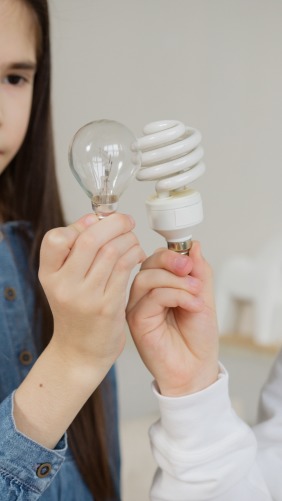Getting Help if Your Hospitality Business Can't Afford its Energy Bills
Even without the addition of record-breaking inflation levels, the hospitality industry can be a tough one to keep afloat. And with a whole host of overheads to consider, it's no wonder energy bills can seem like an almost insurmountable expense for some customer-focused companies.
However, even if you find yourself in a position where you can't afford to pay your energy bills, it's not lights out for your business - in fact, there are many great options available to you. So whether it’s help with cash flow, or a longer-term payment plan you need, we've compiled a comprehensive list of options you can access for support, so you can start to get your business back on track.
How are business energy bills calculated?
Before we get started, it's worth noting that your business' energy bills are likely to be made up of two charges - a daily standing charge, which is a fixed fee for having an active account with your supplier, and a variable unit rate charge, which fluctuates depending on how much energy you use.
While fixed fees can vary depending on your supplier and tariff, the unit rate you're charged is likely to be based on the wholesale cost of gas and electricity, which can also fluctuate. This means that, even if you don't use any more energy than normal in a given month, your bill could still go up or down depending on changes in the market.
Looking for your business's light-bulb moment?
How to reduce your business's energy bills
Of course, the best way to reduce your business energy bills is by using less energy in the first place. And while this might seem like an obvious solution, it's often easier said than done - especially when you're juggling running a business and ensuring full customer satisfaction. So to help, we've compiled a list of some simple, yet effective ideas to get you started:
Educate staff on the importance of energy efficiency
Reminding staff to switch off appliance is one thing, but if your employees understand how their actions can affect your business's energy consumption, it's proven they're more likely to be conscious of their choices and make permanent changes that could save you money in the long run. So by doing this, you not only reduce your energy bills, but you'll also help to instil a genuine culture of sustainability within your business - a desirable attribute for many consumers.
Monitor and reduce water usage
Since water heating is one of the largest contributors to your business costs and carbon footprint, by monitoring your water usage and reducing your consumption, you could see a significant decrease in your business' energy bills.
Whether it's only running dishwashers and machines when they're full, not washing towels and bedding until they're dirty, or installing water-efficient appliances, there are a number of ways to reduce your water usage - and your energy bills as a result.
Introduce energy-saving policies
Energy-saving policies are a great way to ensure that both your staff and customers are on board with your energy-saving initiatives and understand the importance of saving energy for your business and its costs. This makes it easier to actually monitor your business's energy usage while reducing it and your bills simultaneously.
Popular policies include encouraging customers to reuse towels and bedding during their stay and setting a minimum temperature for heating and air conditioning systems overnight or during periods of low occupancy.
Encourage your customers to recycle
Hospitality businesses are known for producing a lot of food waste - but did you know that this can also lead to high energy bills? Providing recycling bins and other environmentally friendly incentives like discounts for customers who bring their own reusable cups, doesn't just reduce your and your customers' waste production but the amount of energy needed to dispose of it and as such, the associated costs.
 Invest in energy-efficient appliances and equipment
Invest in energy-efficient appliances and equipment
Not only will investing in energy-efficient items and appliances reduce your business's overall energy use and bills as a result, but many of them also come with government incentives, like the Energy Technology List (ETL), which can also reduce the upfront cost. Items on the list include LED lighting, solar thermal systems and low-temperature heat pumps.
Getting help with your business' bills
If you’re still struggling to maintain your business overheads even after reducing your energy consumption organically, there are still some alternative avenues you can explore for help.
Contact your energy supplier
Most energy suppliers will offer some form of emergency support for customers who are struggling to make ends meet - so be sure to ask about this too. They may be able to offer you a range of options, such as:
- A payment plan: This could involve spreading the cost of your outstanding bill over a number of weeks or months.
- A reduced tariff: If you're on a standard variable rate tariff, your supplier may be able to offer you a cheaper deal. This is particularly common if you're in debt to them.
- A referral to a debt charity: If you're struggling to repay what you owe, your supplier may refer you to a debt charity for free and impartial advice.
Government grants and funding
The Australian government offers a number of different grants and schemes that hospitality businesses can take advantage of, so if you're struggling to afford your energy bills, it's definitely worth exploring this option. Some great examples include:
- Green Loans Program: The government offers low-interest loans of up to $500,000 to help small businesses invest in energy efficiency.
- Clean Technology Investment Program: This program provides grants of up to $50 million for large-scale renewable energy and energy efficiency projects.
- Solar Credits Scheme: The scheme provides a point of sale discount on the installation of rooftop solar photovoltaic (PV) systems.
Charitable trusts and foundations
There are also a number of charitable trusts and foundations that offer financial assistance to hospitality businesses in Australia - many of which have an environmental focus and high upper limit on the amount they're willing to lend. We've compiled a small list of the best ones below:
- The Myer Foundation: One of Australia's leading philanthropic organisations, it provides grants of up to $250,000 for various conscious causes - including hospitality businesses working to reduce their environmental impact.
- The Paul Ramsay Foundation: The foundation offers grants of up to $500,000 for businesses that focus on sustainability, education and health - making it a great option for hospitality businesses looking/needing to invest in renewable energy or energy efficiency.
Save your energy for your business, with a powerful POS system
Financial management is a huge part of running a business, but it doesn’t have to be stressful or complicated. Let your point of sale (POS) system handle things like reviewing sales, bookkeeping, and accounting tasks:
- Receive, create and send invoices using simple templates and a built-in VAT calculator.
- View detailed reports on profit margin, cash flow, and other expenses.
- Integrate with the business automation apps that are right for your business.
If you're feeling charged about bettering your business, we'd love to hear from you!




